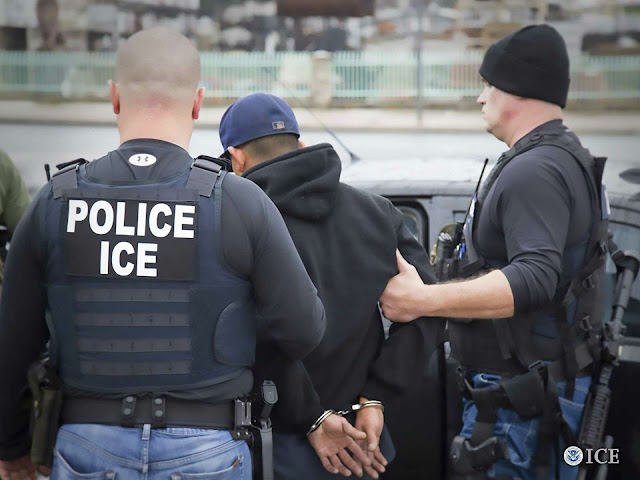Heather Cox Richardson shared some helpful advice about how to survive in these trying times.
Throughout the campaign, experts cautioned that deportations on the scale Trump was promising — and his team wants to deliver — would require massive spending on ICE agents and detention facilities. Republicans in Congress are promising to deliver those resources. But none of that means they can do it right away.
Even so, with a few of the raids that were conducted this week, we see some ominous signs. For example, on Thursday ICE raided a seafood store in New Jersey. While most of the discussion about that one has focused on the fact that they didn't have a warrant and detained a U.S. military veteran, the store owner Luis Janota, described how these kinds of raids will go down (emphasis mine).
"It looked to me like they were specifically going after certain kinds of people — not every kind, because they did not ask me for documentation for my American workers, Portuguese workers, or white workers,” Janota said.
I was immediately reminded of how workers were "sorted by race or ethnicity" during an ICE raid in Laurel, MS conducted at the end of the George W. Bush administration. So if ICE workers think you look white...no problem. No such luck if you're brown-skinned.
In the southwest, the same thing is happening, with Native Americans in the crosshairs.
Since President Donald Trump issued his executive order for an increase in ICE raids, Navajo tribal leaders have received alarming reports that their tribal members are being detained, heightening uncertainties over the implications these actions have for their communities and the safety of their people.As the Washington Post reported back in 2016, Trump has a "long history of clashes with Native Americans" - mostly centered on his involvement with casinos. That's why red flags started waving when his lawyers submitted arguments to the court on his executive order ending birthright citizenship that included this:
“We now know that Navajo people and enrolled members of other tribes are being detained in Phoenix and other cities by ICE,” Navajo Nation Council Speaker Crystalyne Curley said during a committee meeting on Thursday.
“The United States’ connection with the children of illegal aliens and temporary visitors is weaker than its connection with members of Indian tribes,” DOJ argued in a filing. “If the latter link is insufficient for birthright citizenship, the former certainly is,” the Trump administration argued.”
In case you're wondering where that one came from, here you go:
The DOJ cited an 1884 U.S. Supreme Court case, Elk v. Wilkins, in which the high court decided that “because members of Indian tribes owe ‘immediate allegiance’ to their tribes, they are not ‘subject to the jurisdiction’ of the United States and are not constitutionally entitled to Citizenship.”Just as Alito took us back to the 19th century to justify overturning Roe vs Wade, Trump's lawyers are hinting that perhaps we should go back to the same time period to revoke the citizenship of Native Americans.
But the DOJ ignored congressional action, the Indian Citizenship Act of 1924, that explicitly gave Indigenous people U.S. birthright citizenship and effectively ended the rejection of citizenship that the Supreme Court had upheld four decades earlier.





No comments:
Post a Comment